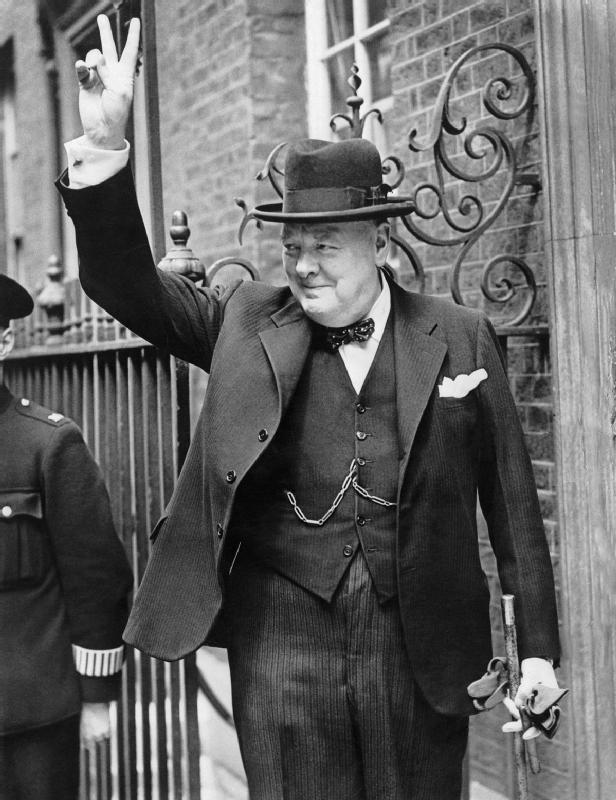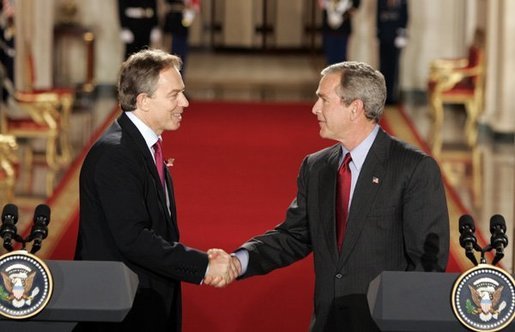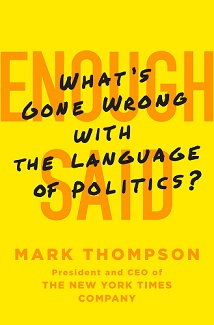by Mark Thompson
It’s May 13, 1940. Winston Churchill has been prime minister of the United Kingdom for three days. This is his first speech to the House of Commons as the nation’s leader. It is also day four of the German invasion of northern France. As Churchill speaks, the French defense is breaking at Sedan. Dunkirk is less than two weeks away.

This passage of Churchill’s speech has the structural clarity of a sonnet, or a prayer. There are two parts— stanzas, I want to call them— the first asking and answering the question “What is our policy?,” the second the question “What is our aim?” The first is controlled by the repeated word “war,” the second by the repeated “victory,” though perhaps the single most important word in the entire passage is the one every thing else builds up to, the last one: “survival.” The extract is rich in technical rhetorical effect: anacoenosis (rhetorical question); alliteration (wage war, that God can give us); enumeratio (listing first the ways the war must be fought, then the challenges that must be faced before victory can be secured); tricolon crescens (those three victory clauses that progressively grow in both length and emphasis).
Monstrous tyranny
Yet it never feels studied or contrived, but immediate, unforced, fluid; the repetition, alliteration, and the short, spare clauses driving both the speaker and listeners forward.
There’s one phrase— the “monstrous tyranny, never surpassed in the dark and lamentable catalog of human crime”— that reminds us of the orotundity that even Churchill’s contemporaries found old- fashioned and pompous.
In this context it is reassuring, Churchill the autodidact weighing the present threat in the scales of the past and assuring us that on this occasion, at least, the moral stakes are as clear as day.
And that’s what strikes us most about this passage, and about the “blood, toil, tears and sweat” speech as a whole. It is not, first and foremost, a moral call to arms. Churchill is rallying the Commons and the nation in the face of a real-world emergency. The enemy is racing across France toward the Channel. Invasion and national destruction are not distant rhetorical threats, but in imminent prospect. Yet the moral imperative is so congruent with the contingent emergency, the enemy so clearly in the wrong, that the language of should and must, of ethical and practical necessity, are one. It is a moment in time— Churchill, as we shall see, was no angel when it came to rhetoric— but it is magnificent.
What a long shadow that clarity casts. How difficult for any subsequent prime minister to stand at the Despatch Box to make a case for war that combines national self-interest and moral necessity so seamlessly.
Tony Blair and standing firm
Let’s listen to one trying. The location is again the House of Commons, the date is March 18, 2003, and Tony Blair is opening the debate into whether Britain should join the United States and other allies in invading Iraq:
At the outset, I say that it is right that the House debate this issue and pass judgment. That is the democracy that is our right, but that others struggle for in vain. Again, I say that I do not disrespect the views in opposition to mine. This is a tough choice indeed, but it is also a stark one: to stand British troops down now and turn back, or to hold firm to the course that we have set. I believe passionately that we must hold firm to that course.

Striking the right tone
There is a gracious tone to this, and indeed to the whole of the speech: an acknowledgment that, as Tony Blair states a few sentences later, “people who agree on every thing else, disagree on this,” while “those who never agree on anything” find “common cause.” In these opening words we hear moral argument at once: whereas in the United Kingdom people have the right to question and debate every thing the government proposes, the citizens of Iraq are not so lucky. Next, there is the recognition that this is a “tough choice,” not in the Churchillian sense of a decision which, although straightforward in itself, will require sacrifices in its execution, but a choice which is difficult to make. It is also a “stark” choice: either to “stand British troops down now and turn back” or to “hold firm to the course that we have set.”
Convince them that they have essentially already made it
But who are we? Well, this we, the we who have set the course so far, is clearly Tony Blair himself and his government. But then he goes on to say: “I believe passionately that we must hold firm.” The second we includes not just his government but also his listeners— every one who will be voting in the Commons and, by extension, the nation. It’s easy to miss the distinction and to hear the following meaning: We -every one must hold firm to the course that we- every one have already set. One way of persuading a reluctant audience to make a painful decision is to convince them that they have essentially already made it, and that to refuse it now would involve an illogical and dangerous climb-down. The blurring of we- government and we- people helps Tony Blair establish this implicit context.
MARK THOMPSON has been the President and CEO of The New York Times Company since 2012. Previously, he was Director-General of the BBC from 2004-2012, and CEO of Channel 4 Television Corporation from 2002-2004. Born in London, Thompson attended Stonyhurst College and Merton College Oxford. Thompson has three children with his wife, writer Jane Blumberg.

